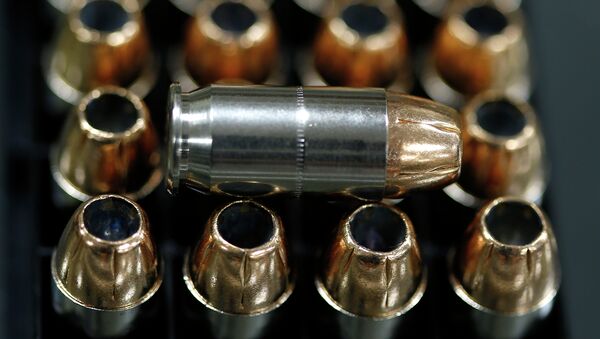Expanding and fragmenting bullets, on the other hand, damage a wider surface area upon striking the target. The bullet shreds into pieces that not only penetrate the body, but that are likely to remain lodged in it, typically destroying a larger portion of tissue, thereby more successfully crippling a target.
Because of their infliction of unnecessary pain, the use of bullets that "expand or flatten easily in the human body" was banned under the Hague Convention of 1899. While the US is not a signatory, the Army generally observes the agreement.
But according to special assistant to the Army Judge Advocate General for Law of War Richard Jackson, a recent legal review by the Pentagon has deemed the adoption of "special purpose ammunition," like the expanding and fragmenting hollow point bullets, appropriate for consideration.
So, as the US Army moves closer to replacing the M9 Beretta with the next-generation XM-17, the solicitation requirements will allow arms manufacturers to use different kinds of ammunition, including hollow point bullets.
Speaking to the Army Times, Jackson said the potential adoption of these new rounds represents a "significant reinterpretation of legal standards." He additionally dismissed criticism of the move, insisting that hollow point bullets are not a violation of international law, and further, that any interpretation of the law that deems them to be so is outdated and inapplicable in the modern conduct of war.
"There’s a myth that [expanding and fragmenting bullets] are prohibited in international armed conflict, but that doesn’t make any sense now," he said.
Jackson even posited that the use of this type of ammunition is actually more humane in the context of modern warfare. Since much of the conflict takes place in urban environments, he argued, the ability of fragmented and expanding bullets to incapacitate a specific target, or armed combatant, reduces the risk of collateral damage.
"There are actually humanitarian benefits from using this type of ammunition," he told the Washington Post. "By staying in the target there isn’t as many collateral effects…it will not go through the target into a bystander nearby or someone in the next room."
A statement by the US Army similarly maintains that the "use of this ammunition supports the international law principles of preventing excessive collateral effects and safeguarding civilian lives."
While expanding and fragmenting bullets are banned under the Hague Convention, the bullets continue to be used by the law enforcement agencies around the world and the US, including the Criminal Investigations Command and military police.
"Very few states have signed [the Convention] and the United States is not one of them," Jackson said. "Law enforcement agencies use hollow points all over the world, so if it doesn’t violate the standards that applies these days, why are we applying those standards on the battlefield?"





